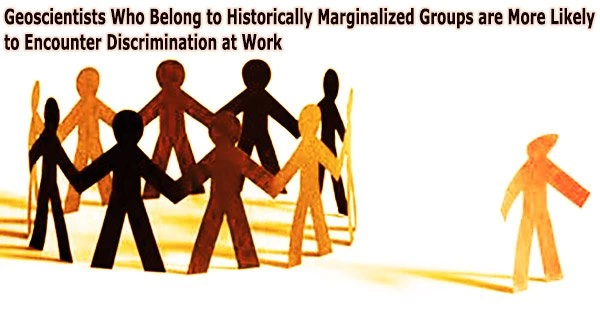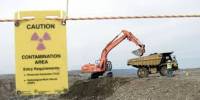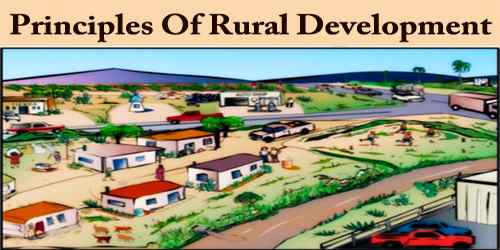Scientists of color, women, people with disabilities, and other groups historically excluded from geoscience careers are more likely than their colleagues to experience hostile and discriminatory behavior at work, according to a groundbreaking study on workplace climate among Earth and space scientists.
In addition to the present efforts being made to increase diversity through recruitment efforts, the results have implications for the retention of scientists in these domains.
In the survey, which was made available through five professional organizations, participants were asked to consider the atmosphere at work over the previous year and to rate how frequently they had encountered a variety of both positive and exclusionary behaviors, such as general rudeness or interpersonal mistreatment, offensive or discriminatory language, and sexual harassment.
Results published in the journal Earth’s Future and reported last week in Nature Geoscience analyzed differences in responses by gender, race and ethnicity, sexual orientation (lesbian, gay, bisexual, queer, pansexual and asexual LGBQPA+), career stage, respondents with or without a disability, and transgender identity.
Although the vast majority of respondents noted pleasant contacts with coworkers who genuinely cared, respected, and acknowledged achievements in public, unfavorable interactions were nonetheless frequent, particularly among populations historically barred from geoscience jobs. They experienced higher rates of conduct characterized as incivility in the workplace: devaluation of work, insulting remarks, threats to physical safety, bullying and intimidation.
Specifically, when compared to scientists at other stages of their careers, geoscientists of color reported higher incidences of racial discrimination and were more likely than white respondents to have their work undervalued.
It is prevalent at conferences, during fieldwork and departmental events, but not everybody feels welcome or comfortable in environments where alcohol flows freely, so it’s an issue of inclusiveness and safety. No surprise, we found that those groups that experience more harassment, bullying and exclusionary behaviors also feel the least comfortable with the levels of alcohol in professional settings.
Erika Marín-Spiotta
“The results validate our argument that you can’t just throw all your resources toward recruitment, which is where the majority of previous diversity, equity and inclusion initiatives have focused,” said Blair Schneider, Kansas Geological Survey science outreach manager and associate researcher.
Schneider is co-principal investigator on the ADVANCEGeo Partnership, which conducted the research. The ADVANCEGeo Partnership includes scientists from the KGS and seven other institutions for research focused on reducing hostile workplace climate barriers in the geosciences.
“Instead, you have to consider recruitment and retention,” Schneider said. “If you manage to recruit more folks into the space, how will you ensure that they feel included and want to stay?”
“While recruitment is a vital tool for increasing diversity in the geoscience field, creating a safe, welcoming and respectful climate is equally crucial for retaining scientists,” said researcher Emily Diaz Vallejo, a graduate student at the University of Wisconsin-Madison.
“Unfortunately, our findings reveal that many underrepresented groups often face negative experiences throughout their careers, which can significantly impact their productivity and desire to remain within their organization or the geoscience field as a whole,” Diaz Vallejo said.
More members of underrepresented groups said that their work experiences had had a negative impact on their professional lives, including avoiding coworkers, losing confidence, producing less, skipping professional events, or thinking about changing careers. Negative individual professional consequences have negative consequences for geosciences as a whole, Schneider said.
“Diversity and representation in the geosciences means greater inputs of creativity, problem-solving and unique perspectives to solve some of today’s greatest challenges,” she said.
“Take climate change, as an example. Climate change is causing more extreme climatic events, which impacts our society disproportionately based on race, gender identity, socio-economic status, age, ability and more. If we lack diversity and representation in the geoscience workforce, then we lack the information needed to support all members of our society as we look to mitigate the effects of these climatic events.”
While the data provide a snapshot of a year’s time span, missing are long-term impacts of these exclusionary behaviors over people’s careers, said Erika Marín-Spiotta of the University of Wisconsin-Madison and ADVANCEGeo Partnership principal investigator.
“We may not have that data, but we have people’s stories,” Marín-Spiotta said. “We all know people who left their jobs or science because they were harassed, bullied or discriminated against. Our data hopefully can put to rest the ‘it doesn’t happen in our discipline’ comments.”
The researchers found that more than half of women, nonbinary and LGBQPA+ scientists experienced identity-based discriminatory remarks. Nonbinary respondents were more likely than women and males to encounter disparaging comments about their physical or mental health by a factor of two and three, respectively.
“One of the most important results of this paper was data revealing that historically excluded groups experience higher rates of sexual harassment than that of all respondents, particularly for nonbinary, disabled and LGBQPA+, which was two to three times higher than the overall response rate,” Schneider said.
The survey also asked respondents about the consumption of alcohol in professional settings. The majority said they were either fine with it or didn’t care how much alcohol was consumed at work. Nonetheless, historically marginalized and at-risk groups, such as responders in their early careers, were more likely to experience discomfort.
“As we show, alcohol plays such an important role in our discipline,” Marín-Spiotta said. “It is prevalent at conferences, during fieldwork and departmental events, but not everybody feels welcome or comfortable in environments where alcohol flows freely, so it’s an issue of inclusiveness and safety. No surprise, we found that those groups that experience more harassment, bullying and exclusionary behaviors also feel the least comfortable with the levels of alcohol in professional settings.”
The authors of the study are still analyzing survey data and extending their investigation to additional STEM professions. Similar findings were reported in that area by a second study involving nearly 400 ecologists that used the same workplace climate survey and was published in Frontiers in Ecology and the Environment.
“Our survey was designed to be able to view our data through multiple, intersecting lenses to understand who in the community is most at risk,” Schneider said. “With this data, we can now design our interventions to better support the groups who are disproportionately impacted.”
















